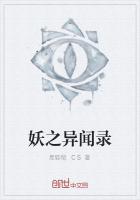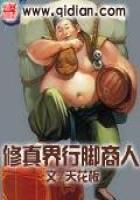This may be believed when the bones of Fisher are as rotten as his heart. Nay, perhaps, it will be credited, that the villain went two days afterwards with some young ladies to the play of Hamlet; and with an unaltered countenance heard one of the ladies, who little suspected how near she was to the person, cry out, "Good God! if the man that murdered Mr. Derby was now present!" manifesting in this a more seared and callous conscience than even Nero himself; of whom we are told by Suetonius, "that the consciousness of his guilt, after the death of his mother, became immediately intolerable, and so continued; nor could all the congratulations of the soldiers, of the senate, and the people, allay the horrors of his conscience."But now, on the other hand, should I tell my reader, that I had known a man whose penetrating genius had enabled him to raise a large fortune in a way where no beginning was chaulked out to him;that he had done this with the most perfect preservation of his integrity, and not only without the least injustice or injury to any one individual person, but with the highest advantage to trade, and a vast increase of the public revenue; that he had expended one part of the income of this fortune in discovering a taste superior to most, by works where the highest dignity was united with the purest simplicity, and another part in displaying a degree of goodness superior to all men, by acts of charity to objects whose only recommendations were their merits, or their wants; that he was most industrious in searching after merit in distress, most eager to relieve it, and then as careful (perhaps too careful) to conceal what he had done; that his house, his furniture, his gardens, his table, his private hospitality, and his public beneficence, all denoted the mind from which they flowed, and were all intrinsically rich and noble, without tinsel, or external ostentation; that he filled every relation in life with the most adequate virtue; that he was most piously religious to his Creator, most zealously loyal to his sovereign; a most tender husband to his wife, a kind relation, a munificent patron, a warm and firm friend, a knowing and a chearful companion, indulgent to his servants, hospitable to his neighbours, charitable to the poor, and benevolent to all mankind. Should I add to these the epithets of wise, brave, elegant, and indeed every other amiable epithet in our language, I might surely say, -Quis credet? nemo Hercule! nemo;Vel duo, vel nemo; and yet I know a man who is all I have here described. But a single instance (and I really know not such another) is not sufficient to justify us, while we are writing to thousands who never heard of the person, nor of anything like him. Such rarae aves should be remitted to the epitaph writer, or to some poet who may condescend to hitch him in a distich, or to slide him into a rhime with an air of carelessness and neglect, without giving any offence to the reader.
In the last place, the actions should be such as may not only be within the compass of human agency, and which human agents may probably be supposed to do; but they should be likely for the very actors and characters themselves to have performed; for what may be only wonderful and surprizing in one man, may become improbable, or indeed impossible, when related of another.
This last requisite is what the dramatic critics call conversation of character; and it requires a very extraordinary degree of judgment, and a most exact knowledge of human nature.
It is admirably remarked by a most excellent writer, that zeal can no more hurry a man to act in direct opposition to itself, than a rapid stream can carry a boat against its own current. I will venture to say, that for a man to act in direct contradiction to the dictates of his nature, is, if not impossible, as improbable and as miraculous as anything which can well be conceived. Should the best parts of the story of M. Antoninus be ascribed to Nero, or should the worst incidents of Nero's life be imputed to Antoninus, what would be more shocking to belief than either instance? whereas both these being related of their proper agent, constitute the truly marvellous.
Our modern authors of comedy have fallen almost universally into the error here hinted at; their heroes generally are notorious rogues, and their heroines abandoned jades, during the first four acts; but in the fifth, the former become very worthy gentlemen, and the latter women of virtue and discretion: nor is the writer often so kind as to give himself least trouble to reconcile or account for this monstrous change and incongruity. There is, indeed, no other reason to be assigned for it, than because the play is drawing to a conclusion;as if it was no less natural in a rogue to repent in the last act of a play, than in the last of his life; which we perceive to be generally the case at Tyburn, a place which might indeed close the scene of some comedies with much propriety, as the heroes in these are most commonly eminent for those very talents which not only bring men to the gallows, but enable them to make an heroic figure when they are there.
Within these few restrictions, I think, every writer may be permitted to deal as much in the wonderful as he pleases; nay, if he thus keeps within the rules of credibility, the more he can surprize the reader the more he will engage his attention, and the more he will charm him. As a genius of the highest rank observes in his fifth chapter of the Bathos, "The great art of all poetry is to mix truth with fiction, in order to join the credible with the surprizing."For though every good author will confine himself within the bounds of probability, it is by no means necessary that his characters, or his incidents, should be trite, common, or vulgar; such as happen in every street, or in every house, or which may be met with in the home articles of a newspaper. Nor must he be inhibited from showing many persons and things, which may possibly have never fallen within the knowledge of great part of his readers. If the writer strictly observes the rules above mentioned, he hath discharged his part; and is then intitled to some faith from his reader, who is indeed guilty of critical infidelity if he disbelieves him.
For want of a portion of such faith, I remember the character of a young lady of quality, which was condemned on the stage for being unnatural, by the unanimous voice of a very large assembly of clerks and apprentices; though it had the previous suffrages of many ladies of the first rank; one of whom, very eminent for her understanding, declared it was the picture of half the young people of her acquaintance.















